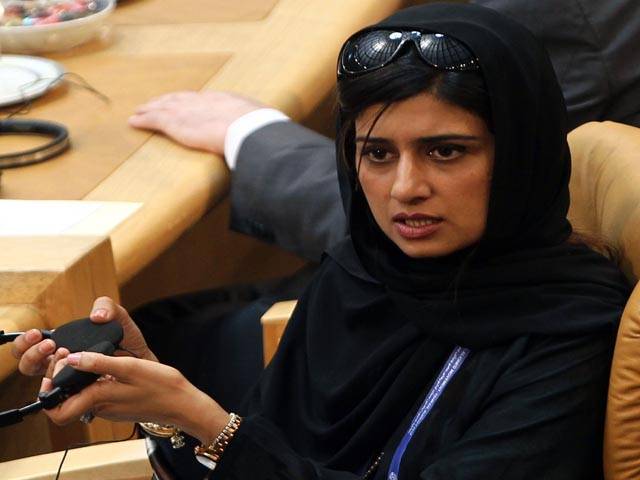Minister for Foreign Affairs Hina Rabbani Khar has said drone strikes are counterproductive in the war against terrorism. In an interview on Friday on the sidelines of the second day of Non Alignment Movement Summit‚ she said Pakistan has a clear stance on the drone attacks. These‚ she said‚ are not helpful in fighting the menace of extremism. She said Pakistan wants to have good relations with neighborly countries on the basis of mutual respect and interests. “You see Pakistan’s position is clear today and has been clear in the past. Our position is that this is something which is counter-productive. It is unlawful. It is illegal, and therefore they must cease. This is what the parliament of Pakistan has clearly said,” Ms. Khar said. “We are in close discussion with the U.S. to find different ways and means to be able to achieve the same objectives, as far as the U.S. is concerned,” she added, calling on Washington to immediately end its drone attacks in Pakistan’s territories. The killing of Pakistani civilians, including women and children, in drone strikes has strained relations between Islamabad and Washington, prompting Pakistani officials to send warnings to the U.S. administration over the assaults. On Tuesday, dialogue and diplomacy should be the only instruments to resolve the standoff over Iran’s nuclear program, Ms. Khar said at a ministerial meeting of the Non-Aligned Movement. Ms. Khar and other ministers at the summit condemned “unilateral” actions — particularly sanctions against Iran and other nations — and called for a greater say for developing countries in decision-making at the United Nations. Other issues included a call for the creation of a Palestinian state based on 1967 borders, and an appeal for nuclear disarmament, particularly in the Middle East. In her speech during an interactive debate on “Lasting peace through joint global governance”, Ms. Khar stressed the need to follow founding principles of NAM based on peaceful coexistence, respect for human rights and territorial integrity of all states to ensure an enduring peace and progress in the world, according to a press release sent to the Tehran Times from Pakistan Embassy in Tehran. The Pakistani foreign minister said a major challenge confronting the world was how to achieve international peace and security on the basis of equality. “We all know peace and development are mutually reinforcing and without peace we cannot even think of development and prosperity,” she said. Ms. Khar called for a just solution of the Palestine issue on the basis of Palestinians’ right to self-determination and stressed an immediate end to the ongoing bloodshed in Syria. She said Afghanistan would need support of NAM fraternity as it moved towards the transition phase in 2014. She said Pakistan had always stood for human rights and democratic ideals. “We believe every country and nation is entitled to nurture and promote these values in accordance with their own historical experience, cultural and religious values.” The Pakistani official termed disarmament and non-proliferation an important area for global peace and security. “Equal and undiminished security for all states must be the norm to ensure global peace and security,” the foreign minister added. Ms. Khar said economic and social development of nations was the most important area to build and sustain peaceful, prosperous and harmonious societies. She said the world needed to generate 600 million jobs to accommodate the young people who would enter the job market over the next 10 years. “We need to cooperate and work with our partners from developed countries to meet the needs and aspirations of our youthful populations.” She pointed to several global issues that required a unified effort by NAM — rising costs and scarcity of energy, the continued external exploitation of natural resources, especially in Africa; the growing shortage of water; and the problem of migration, including free flow of labor from the developing to the developed countries. She said restrictions on the flow of technology, especially advanced technology, to developing countries and environmental degradation due to over-consumption by the rich at the cost of the poor in developing countries were additional problems. Ms. Khar said the non-aligned movement could play a role in the enlargement and implementation of the trade and development agenda through measures like reduction of agricultural subsidies in rich countries; elimination of high and escalating tariffs against developing countries; commodity price stabilization; special and differential treatment, and capacity-building. Ms. Khar said that NAM countries could also help each other directly through regional economic integration and specific schemes for South-South cooperation. The Pakistani foreign minister said a tendency had been noticed that when various challenges began to assume crisis proportions, the major powers sought to go `small’ and `selective’ by opting for decision making in self-selected mechanisms. “This is a mistake that must be avoided.” The United Nations might not be most efficient, but it was still the best available. Small may be easy to manage but the shelf life of decisions taken through these mechanisms did not enjoy the desired legitimacy, she added. She praised Egypt’s stewardship of NAM over the past three years.
Thursday, April 18, 2024
Pakistan has a clear stance on US drone attacks: Hina

ITP cracks down on traffic violations
April 18, 2024
Illegal housing societies in Rawalpindi to face crackdown
April 18, 2024
SZABIST traffic volunteers visit Safe City Islamabad
April 18, 2024
Hepatitis Challenge
April 18, 2024
IMF Predictions
April 18, 2024
Wheat War
April 18, 2024
Rail Revival
April 17, 2024
Addressing Climate Change
April 17, 2024
Justice denied
April 18, 2024
AI dilemmas unveiled
April 18, 2024
Tax tangle
April 18, 2024
Workforce inequality
April 17, 2024
New partnerships
April 17, 2024
ePaper - Nawaiwaqt
Advertisement
Nawaiwaqt Group | Copyright © 2024





